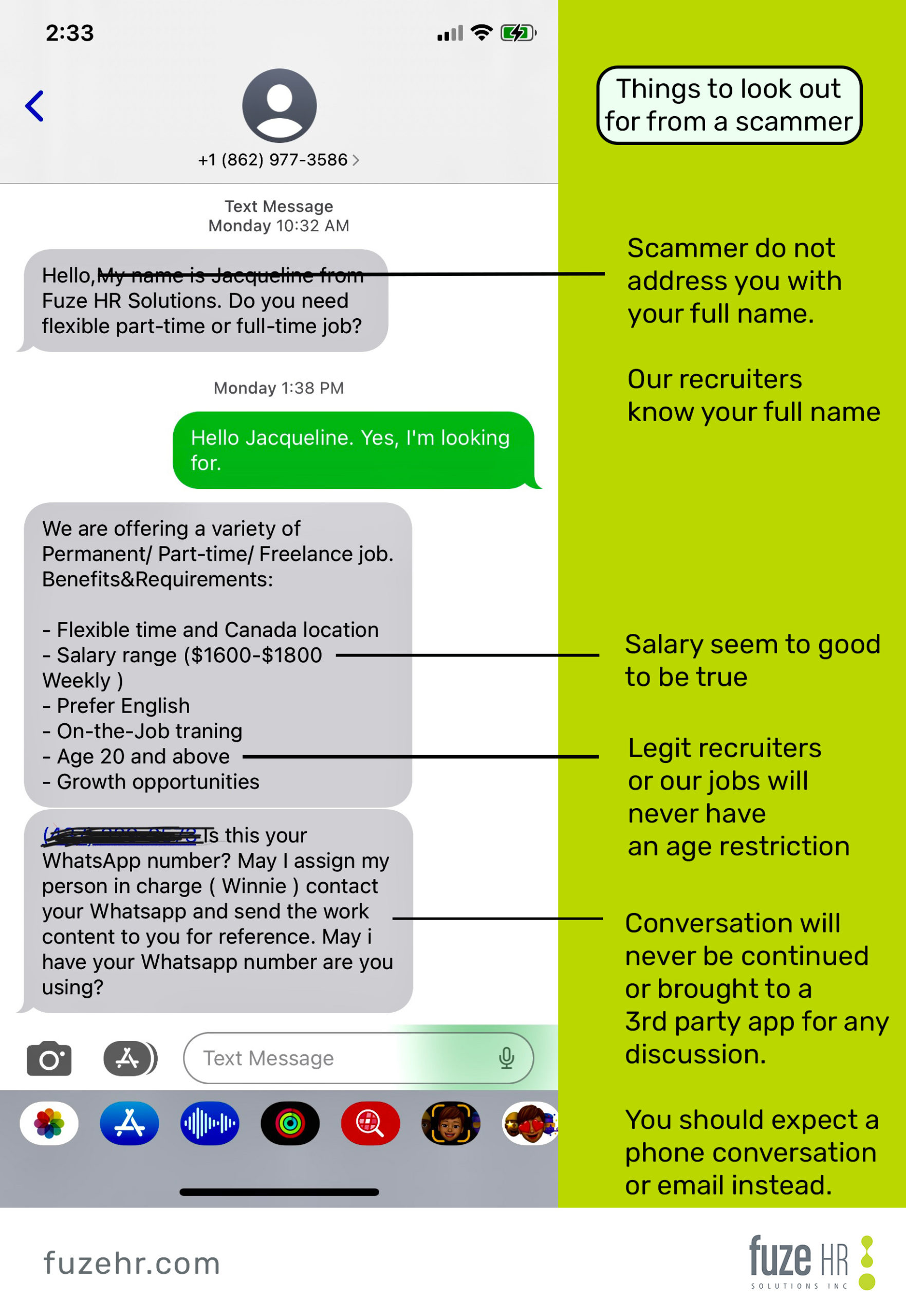Scammers impersonating well-known recruitment firms on the rise
In an era dominated by digital communication and online job hunting, the threat of scams has evolved to target unsuspecting job seekers. A concerning trend that has emerged is the rise of scammers impersonating recruiters from well-known recruitment agencies. These individuals prey on the vulnerability of job seekers, using various messaging platforms like Whatsapp, Telegram, SMS, or email to carry out their deceitful practices.
Identifying Red Flags:
To shield yourself from falling victim to these scams, it’s crucial to recognize the red flags associated with fraudulent recruitment efforts. Here are some warning signs to be wary of:
- Impersonal Greetings: Scammers often fail to address you by your full name, using generic salutations instead.
- Financial Requests: Legitimate recruiters will never ask for payment information, credit card numbers, or request payment for their services or job trials.
- Vague Job Descriptions: Be cautious if the job description provided is overly vague or lacks specific details about the position.
- No Experience Required: A reputable job opportunity typically demands a certain level of experience. Be skeptical if the job claims to require no prior experience.
- Too Good to be True Salary: If the offered salary seems exceptionally high for the type of work, exercise caution and investigate further.
- Spelling Errors: Poor grammar and spelling mistakes in job advertisements are indicative of potential scams.
- Pressure Tactics: Scammers may exert undue pressure to rush you into accepting a job offer. Legitimate recruiters provide reasonable time for consideration.
- Equipment Purchases or Money Transfers: If you’re asked to buy equipment upfront or deposit money, especially through unconventional means, it’s likely a scam.
Here are some examples:



How to protect yourself and take precautions:
To verify the authenticity of a recruitment message, consider the following measures:
- LinkedIn Research: Legitimate recruiters usually have a presence on LinkedIn. Research the recruiter’s profile to confirm their affiliation with a reputable recruitment company.
- Email Address Verification: Check if the email address corresponds to the official domain of the recruitment agency. Be cautious if it is from a personal email account.
- Website Discrepancies: Verify that the link provided in the message matches the official website of the recruitment company. Scammers often use slightly altered URLs.
- Thorough Research: Utilize search engines and social media to gather information about the alleged recruiter and the recruitment agency. Legitimate agencies have a visible online presence.
- Job ID Confirmation: Request the job ID number and cross-verify it on the official company website. Genuine job postings will have a corresponding ID on the company’s career page.
As scammers continue to exploit the digital landscape, job seekers must remain vigilant and informed. By recognizing red flags and implementing verification measures, individuals can protect themselves from falling victim to recruitment agency impersonation scams. Stay cautious, conduct thorough research, and prioritize your online safety in the pursuit of career opportunities.
If you have received a message or email from someone claiming they work for Fuze HR Solutions and you are unsure, you can validate with us first by
visiting this page or send an email to us by
clicking here








